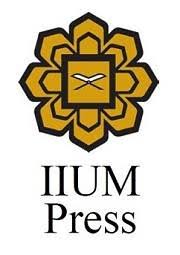Scrutinising Historical Narrations: Between Ibn Khaldūn and the Scholars of Ḥadīth Criticism
DOI:
https://doi.org/10.31436/alburhn.v6i1.231Keywords:
Ibn Khaldūn, ḥadīth criticism, historical reports, Islamic historiography, history and civilisationAbstract
‘Abd al-Raḥmān ibn Muḥammad ibn Khaldūn al-Ḥaḍramī is a renowned Muslim scholar who has been considered by many researchers as the founder of the modern discipline of historiography. The uniqueness of his method of scrutinising historical narrations gives his works wide recognition. This paper intends to explore Ibn Khaldūn’s principles of scrutinising historical narrations and make a comparison between his principles and the principles of validating narrations in ʿUlūm al-Ḥadīth, to figure out the extent to which Ibn Khaldūn has been influenced, in his discourse, by the principles of the scholars of ḥadīth. This paper represents a library-based research, hence, the qualitative method has been adopted. This study has revealed the fact that Ibn Khaldūn’s approach towards the scrutiny of the narrations is an extension of the previous principles laid down by the scholars of ḥadīth. However, the major difference between both parties lies in the fact that the principles of the scholars of ḥadīth address all types of the narrations, whether historical or non-historical narrations, without giving preference to the historical ones above the others, while Ibn Khaldūn was the first Muslim scholar who concentrated purely and strictly on scrutinising historical materials.
Downloads
References
al-Qurʾān al-Karīm.
Abū Dāwūd, Sulaymān ibn al-Ashʿath al-Azdī al-Sajistānī. al-Sunan. Edited by Muḥammad ʿAwwāmah. 1st ed. Beirut: Muʾassasah al-Rayyān, 1998.
al-Bukhārī, Muḥammad ibn Ismāʿīl Abū ʿAbd Allah. al-Jāmiʿ al-Musnad al-Ṣaḥīḥ al-Mukhtaṣar Min Umūr Rasul Allah Wa Sunanihi Wa Ayyāmihi. Edited by Muhammad Zuhair al-Nasir. Beirut: Dār Ṭawq al-Najāh, 2001.
al-Jubouri, Imadaldin. “Ibn Khaldun and the Philosophy of History.” Philosophy Now, 2005. https://philosophynow.org/issues/50/Ibn_Khaldun_and_the_Philosophy_of_History.
al-Judaie, Abdullah Yusuf. Taḥrīr ʿUlūm al-Ḥadīth. Beirut: Muʾassasah al-Rayyān, 2003.
al-Nawawī, Yaḥyā ibn Sharaf Abū Zakariyyā. al-Minhāj Sharḥ Ṣaḥīḥ Muslim Ibn al-Ḥajjāj. Beirut: Dār Iḥyāʾ al-Turāth al-ʿArabī, 1972.
al-Shawkānī, Muḥammad ibn ʿAlī. Adab al-Ṭalab Wa Muntahā al-Arab. Beirut: Dār al-Kutub al-ʿIlmiyyah, 2008.
al-Suyūṭī, ʿAbd al-Raḥmān ibn Abī Bakr Jalāl al-Dīn. Tadrīb al-Rāwī Fī Sharḥ Taqrīb al-Nawawī. Edited by Abū Qutaybah Naẓar Muḥammad al-Fāriyābī. Riyadh: Dār Ṭaybah, 2006.
al-Suyūṭī, ʿAbd al-Raḥmān ibn Abū Bakr Jalāl al-Dīn. Ḥusn al-Muḥāḍarah Fī Tārīkh Miṣr Wa al-Qāhirah. Cairo: Dār Iḥyāʾ al-Kutub al-ʿArabiyyah, 1967.
Brett, Michael. “Berber.” In Encyclopedia Britannica, n.d. https://www.britannica.com/topic/Berber.
Ibn al-Ṣalāḥ, ʿUthmān ibn ʿAbd al-Raḥmān Taqiy al-Dīn al-Shahrazūrī. Maʿrifat Anwāʿ ʿUlūm al-Ḥadīth. Edited by Nūr al-Dīn ʿItr. Beirut: Dār al-Fikr, 1986.
Ibn al-Ṣalāḥ, ʿUthmān ibn ʿAbd al-Raḥmān Taqiy al-Dīn al-Shahrazūrī. Maʿrifat Anwāʿ ʿUlūm al-Ḥadīth. Edited by Māhir Yāsīn al-Faḥl and ʿAbd al-Laṭīf al-Humaym. Beirut: Dār al-Kutub al-ʿIlmiyyah, 2002.
Ibn al-ʿImād al-Ḥanbalī, ʿAbd al-Ḥayy ibn Aḥmad. Shadharāt al-Dhahab Fī Akhbār Man Dhahab. Beirut: Dār Ibn Kathīr, 1986.
Ibn Ḥajar al-ʿAsqalānī, Aḥmad ibn Muḥammad ibn ʿAlī. Fatḥ al-Bārī Sharḥ Ṣaḥīḥ al-Bukhārī. Beirut: Dār al-Maʿrifah, 1959.
Ibn Ḥajar al-ʿAsqalānī, Aḥmad ibn Muḥammad ibn ʿAlī. Nuzhat al-Naẓar Fī Tawḍīḥ Nukhbat al-Fikar Fī Muṣṭalaḥ Ahl al-Athar. Edited by Nūr al-Dīn ʿItr. Damascus: Maṭbaʿah al-Ṣabāh, 2000.
Ibn Kathīr, Ismāʿīl ibn ʿUmar. Ikhtiṣār ʿUlūm al-Ḥadīth. Edited by Māhir Yāsīn al-Faḥl. Riyadh: al-Maymān li al-Nashr wa al-Tawzīʿ, 2013.
Ibn Khaldūn, ʿAbd al-Raḥmān ibn Muḥammad. Dīwān al-Mubtadaʾ Wa al-Khabar Fī Tārikh al-ʿArab Wa al-Barbar Wa Man ʿĀṣarahum Min Dhawī al-Shaʾn al-Akbar. Beirut: Dār al-Fikr, 1998.
Ismail, Tuan Mohd Sapuan Tuan, Rohaizan Baru, Ahmad Fauzi Hassan, Ahmad Zahid Bin Salleh, and Mohd Fauzi Mohd Amin. “The Matan and Sanad Criticisms in Evaluating the Hadith.” Asian Social Science 10, no. 21 (October 2014): p152. https://doi.org/10.5539/ASS.V10N21P152.
Jamil, Khairil Husaini Bin. “Early Sunnī Historiography: A Study of the Tārīkh of Khalīfa b. Khayyāṭ, by Tobias Andersson.” Ilahiyat Studies 11, no. 2 (2020): 326–29. https://doi.org/10.12730/13091719.2020.112.214.
Muslim, Ibn al-Ḥajjāj al-Naysābūrī. al-Musnad al-Ṣaḥīḥ al-Mukhtaṣar Min al-Sunan Bi Naql al-ʿAdl ʿan al-ʿAdl Ilā Rasul Allah. Cairo: Dār al-Taʾṣīl, 2014.
Shafi, Mohammad. “The HADITH - How It Was Collected and Compiled.” daralislam.org. Accessed April 29, 2019. http://daralislam.org/portals/0/Publications/TheHADITHHowitwasCollectedandCompiled.pdf.
Stone, Caroline. “Ibn Khaldun and the Rise and Fall of Empires.” Muslim Heritage, 2010. https://muslimheritage.com/ibn-khaldun-rise-fall-empires/.
ʿAwad Allāh, Ṭāriq. Sharḥ Lughat al-Muḥaddith. Egypt: Maktabah Ibn Taymiyyah, 2002.
Downloads
Published
How to Cite
Issue
Section
License
In general, reusing or reproducing substantial portions of al-Burhān content requires permission. This includes the use of text, figures, tables, multimedia content, and any other material published in any issues of al-Burhān Journal of Qur'an and Sunnah Studies. For some instances, al-Burhān may make its content freely viewable; however, such material may require permission for reuse. To seek permission, please contact the editorial.









